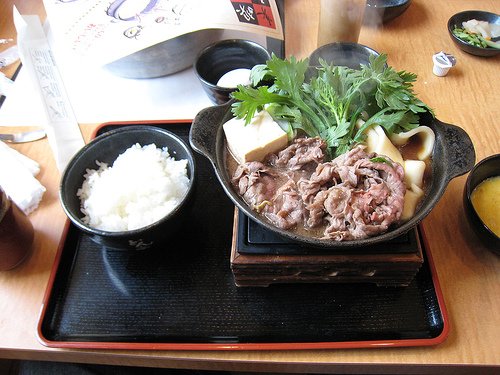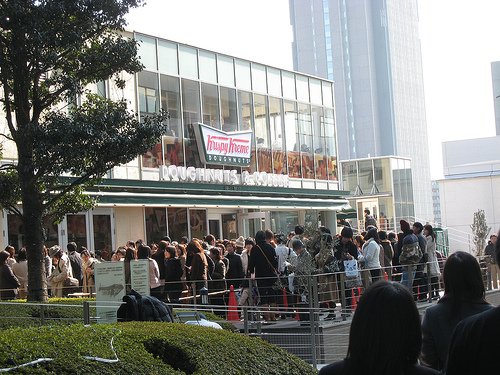There’s a minor hullabaloo going on between Japan and Australia right now after the publication of a controversial book on Princess Masako, the Harvard- and Oxford-educated woman who became “Japan’s Diana” when she married Prince Naruhito, the future Emperor. In the book, author Ben Hills argues that Masako has been made a “Prisoner of the Chrysanthemum Throne” and delves into the various problems she’s had to deal with since joining the Japanese Royal Family in 1993 (I have a special commemorative 500 yen coin from back then in my house somewhere). While he overplays things a bit for their dramatic value, it’s true that the past 14 years haven’t exactly been a Cinderella story for poor Masako-sama, who had visions of reforming Japan’s Imperial Household Agency with modern, Western-influenced ideas before the weight of 2000 years of tradition wore her down. The book has brought about quite a backlash from Japan, which highlights one of the odder aspects of this otherwise free-thinking democracy: one does not criticize the Imperial Family. Now that a male heir has been born to Naruhito’s younger brother, a lot of the pressure is off poor Masako to get pregnant again. Japanese history is measured in eras that go with the reign of each emperor, with the Showa Era (1925-1989) being the reign of Emperor Hirohito, and the current Heisei Era (1990-present) being the current Emperor Akihito, who is getting on in years. I wonder what the next era will be called?
Last time I talked about how Japan’s society is more ordered than the U.S. or Europe, organized in a way that literally creates a pecking order from the lowest to the highest, from the neighborhood dog that comes around sniffing for scraps all the way up to the Emperor himself. There are mechanisms found in Japanese society that reinforce this up-down nature, such as senpai and kohai, a person’s senior or junior in a school or organization, a heavy focus on treating people who are older than you with more respect and receiving this respect from those younger than you, and a system of polite language that we could never conceive of in English. In practice, Japan becomes a “vertical” society, where the U.S. is theoretically more “horizontal,” and almost nothing is allowed to mess up the tidy little system that exists here. When my sister entered the second grade, the teachers decided she was too advanced and moved her to the third grade, something that would never happen in Japan, as it would mess up the balance that people depend on throughout their lives. One by-product of this up-down structure is that there are barriers of politeness in place that keep me from being “friends” with someone who is much older or younger than me when speaking Japanese with them — although there’s no problem if we converse in English.
Near our house, we can see the Sphinx, the Statue of Liberty, and many other interesting wonders of world. These are pachinko parlors, a major source of entertainment for many Japanese men and women in Japan. An odd game which I don’t pretend to understand, you basically buy a bucket of balls for $50, then sit for hours trying to hold a controller in just the right position to make most of the balls go into certain holes in the pachinko machine. Since “gambling” is illegal in Japan, except for certain events like horse, boat and bicycle racing, you don’t win money if you get more balls than you started out with — you get valuable prizes which you redeem for cash at a shady building next to the pachinko parlor. (Remind me to talk about the concepts of tatemae, the way we pretend things are, and honne, the way they are in reality.) Pachinko is quite a competitive business to be in, and operators (who always seem to be getting involved with some crime or another) work very hard to bring in the newest machines in — with little video screens or cute anime-style characters printed on them, for example, or recently, pachinko machines based on famous anime series.
J-List loves PC dating-sim games, a great way to interact with beautiful girls (or guys) on your Windows computer, and we carry virtually every title available in English for fans, with many titles available in Internet Download Editions. We’ve recently gone through and added opening and demo movies for many popular games that you can watch, including Brave Soul, Heart de Roommate, the X-Change saga, Yin-Yang!, Pick Me Honey!, Bazooka Cafe and more. Check them out now!
J-List sells a unique line of original kanji T-shirts, with designs that range from hilarious to aesthetically beautiful to just plan cool to wear. We’ve added several T-shirts and Hoodies to our discount page, which we’re closing out to make room for future designs. It’s a great opportunity to pick up a great original shirt that won’t be available again and get it at a great price too, but you should hurry as quantity is limited and sizes do sell out. If you’re a big person you should also check out the site, as we’ve got several XXL and XXXL sized shirts there for you, all at great prices, too.
Remember that J-List carries over 3000 amazing products you can only find in Japan. One of our specialties is Domo-kun, the super cute plush toy that is the official spokesmonster of NHK, Japan’s public broadcasting network. Unfortunately nearly all of the products we carry are out of production and can no longer be stocked by us, meaning that if you’d like to score a Domo-kun pen, plush keychain or the infamous “whenever you … God kills a kitten” plush toy. So…check our Domo-kun lineup now!
















